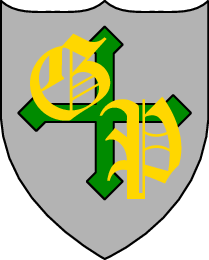Who Wrote the Traditional Mass?
Donald P. Goodman III

Who wrote the traditional Mass? That is, who actually composed the prayers that we use, most recently according to the missal of 1962? That's an interesting question that has an equally interesting but very simple answer.
With modern liturgies, there is a very clear answer for such questions. For example, who wrote the Novel Rite of 1970? Archbishop Annibale Bugnini wrote it, with the assistance of a committee of various individuals. There are nuances to this—they did use some previously existing prayers, though they changed most of them—but this is the definite and unquestionable answer.
But who wrote the Traditional Mass? There is no such simple response.
We can identify those who are responsible for individual parts of the Mass, sometimes. E.g., it seems pretty clear that the Agnus Dei was inserted by Pope St. Gregory the Great. And some parts appear to have been present from the very beginning; e.g., the facing toward the East (identified by St. Basil, among others, as a tradition arising from the Apostles); the institution narrative; the Our Father. It's not a stretch to say that such things are apostolic; that is, that they were “written”, in the sense of “put into the Mass”, by the Apostles themselves.
But who “wrote” the Traditional Mass?
Ultimately, nobody wrote it; or, more accurately, God wrote it. The parts that are apostolic (facing the East; the Our Father); the parts that arose from the patristic age (the Agnus Dei; the Sanctus; the mysterium fidei in the Consecration; Gregorian chant; elements of the offertory); the medieval developments (the full offertory; the prayers at the foot of the altar); and the final flowering of the Tridentine reforms (retention of the five sequences); no man or even men can claim responsibility for any of this, nor can any critic point at any one man or group of men to say that they did a good or bad job. The Mass wasn't written; it grew and flowered and bloomed in the fullness of time into the glorious form that tradition bequeathed to us.
Asking where the Traditional Mass came from is like asking where a mighty oak tree came from: it came from God. A tiny acorn, containing the fully grown oak in seminal form, accumulated the nutrients and substance of the soil, the sun, the water, the life all around it until it became the great, glorious edifice that shades the world. In the same way, nobody stepped up and said, “I am going to create a ceremony to surround the Eucharist, which we will call the Mass.” That is, nobody did so until 1969.
Rather, Divine Providence, in its ineffable and inexorable progress, took what was bequeathed to us by Christ through His Apostles, and over the centuries built up the splendid, awe-inspiring, truly divine ritual that forms the Traditional Rite. It wasn't made by human hands; it was built up over centuries by Divine Providence working through the human beings who made up the Church of God.
When we consider that the Traditional Mass was “written”, in a very real sense, by God Himself through His Providential guidance, while the Novel Rite was very literally written by a bunch of guys in the 1960s, the problem with the Novel Rite is much more readily apparent. It's not a matter of traditionalists failing to “trust the Church”; rather, it's a matter of the so-called reformers failing to trust in Providence. God did not make a mistake when He made the Traditional Rite, and it is a monstrous impiety to say or imply that He did.
Praise be to Christ the King!
